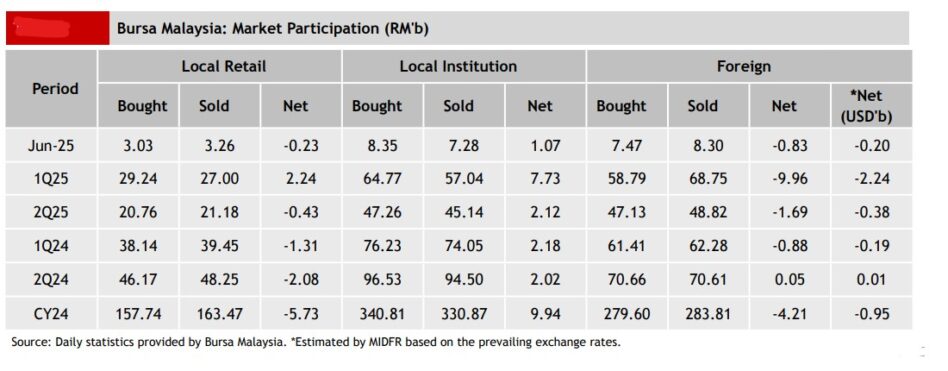THIS latest chapter in the Iran-Israel conflict underscores the fragility of peace in the region and the high stakes involved in nuclear proliferation and regional rivalries.
As both nations dig in, the path to de-escalation appears increasingly narrow, with the risk of a full-scale war looming large.
There is a possibility that Iran will blockade the Strait of Hormuz amid its escalating conflict with Israel. Iran has recently stated that Tehran is considering closing the waterway as tensions with Israel intensify.
The Strait of Hormuz is a critical waterway for the global oil and gas sector, often referred to as the world’s most important oil artery.
Approximately 20-25% of the world’s total oil consumption passes through the Strait of Hormuz (~17.8-20.9mbpd).
OPEC members (Saudi Arabia, Iran, UAE, Kuwait, Iraq) rely heavily on the Strait to export most of their crude oil, primarily to Asia.
The Strait is also vital for liquefied natural gas (LNG) exports with Qatar as one of the world’s largest LNG exporters.
About 20% of global LNG trade transits through the Strait of Hormuz, with Europe being a key destination.
The blockade of the strait could interrupt trade flow in the region, and this could push oil prices.
The recent attack on Iran by Israel, for example, quickly resulted in Brent crude oil prices surging more than +7% within a day to USD74.5pb, level last seen in early Apr-25 after hovering around USD65pb over the past 2 months.
If tensions escalate significantly but the Strait doesn’t fully close, oil could breach USD100-120pb.
In a full closure scenario at an extended period, consensus projected that oil prices could easily exceed USD150-250pb, driven by fundamental scarcity and panic buying. Full closure is expected to remove 17-20mbpd from the market with limited alternatives.
As a small and open trading nation, Malaysia’s economic growth can be impacted by changes on the external front including trade war and the escalation in the major global conflicts.
In our scenario analysis, which we published in our recent quarterly market outlook, we assume 3 possible scenarios where technical recession could lead to the US growing below +1% or even experiencing a small contraction of -0.2% if the 2 quarter declines were to be followed by zero growth for a couple quarters.

In a more severe contraction to the global trade, the collapse of global demand raises the risk of global recession which will be further dragged down by the escalation in geopolitical tensions.
If other economies are severely impacted by the slowdown in the world economy, the sharper decline in global demand will also hurt Malaysia’s economic growth more.
With the -2.0% decline in the US GDP, Malaysia’s economy could see a marginal decline in economic growth of -0.5%, where the external trade slowdown will also affect domestic economic activities.
In this scenario, we expect there will be some hit to the domestic economy as sharper export slowdown on the back of weaker global economic growth will also result in workers, especially those in the export-oriented industries, to be laid off.
At the same time, the commodity and manufacturing sectors, as well as selected services sectors (such as storage and transport services and businesses serving the manufacturing and trade sectors) will also face less encouraging growth prospects due to the impact on hirings and higher costs from higher prices of crude oil and other inputs.
Escalating geopolitical risks are a significant concern, as they inherently increase global instability and lead to a slowdown in worldwide economic activities.
This heightened uncertainty directly affects global trade performance, primarily through disruptions to supply chains and higher energy prices.
Major conflicts also impede shipping routes, drive up freight costs and create shortages of crucial raw materials and components, which in turn severely affects Malaysia’s vital manufacturing and export sectors.
Furthermore, such conflicts often trigger economic slowdowns or recessions in key trading partners like the US, Europe, China, and Japan, inevitably leading to a reduction in global demand for Malaysian goods.
This widespread geopolitical instability also tends to make investors more risk-averse, prompting capital outflows from emerging markets like Malaysia and slowing down foreign direct investment (FDI), thereby stifling economic growth and development.
Moreover, any further escalation of the conflict would spread to other neighbouring countries in the Middle East, which we assume the S3+ Scenario may be in effect as we would see a sharper contraction in the US GDP growth and dragging down Malaysia’s economic growth into contraction.
We foresee a further downside risk to the equity market if the recent Iran-Israel military conflict escalates into a protracted (albeit limited to mainly aerial) war.
A prolonged military conflagration in the environs of the Arabian Gulf region could result in skyrocketing energy prices which in turn heightened inflationary pressure as well as triggering demand slowdown and loss of employment. —June 6, 2025
Main image: The Conversation




